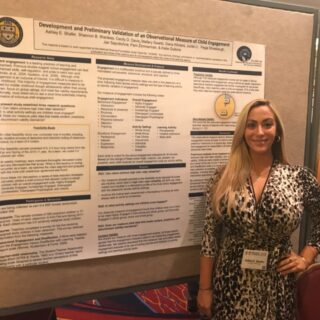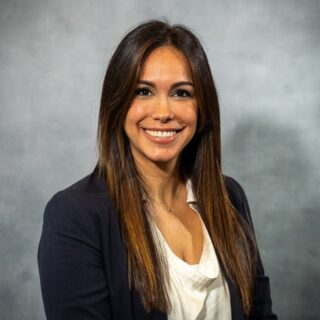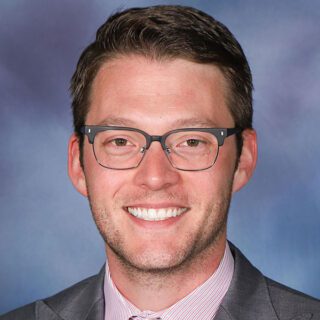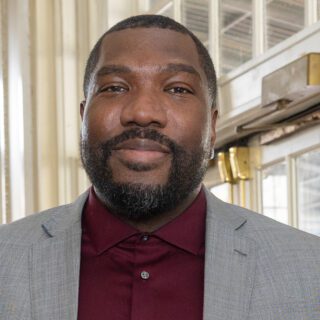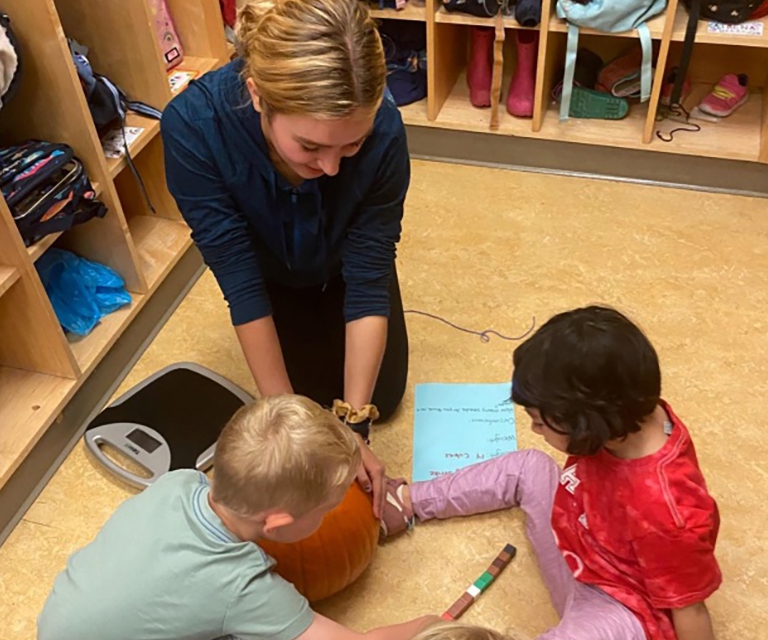
Student Teaching at Falk Laboratory School: Mary Borkoski
The Fanny Edel Falk Laboratory School, a K-8 laboratory school affiliated with the University of Pittsburgh School of Education, serves as a demonstration school: a place where teachers learn to teach. Each year, approximately 20 students from the Pitt School of Education complete their student teaching under the mentorship of Falk teachers.
This is the first profile in a four-part series about student teaching at the Falk Laboratory School, originally published on the school’s website.
Kindergarten teacher Christa Cooke completed her student teaching under Chelsea Butela, who now teaches yoga. This term, Cooke has had Mary Borkoski, a fourth-year student in the School of Education’s Combined Accelerated Studies in Education (CASE) program, in the classroom where she co-teaches with Colleen Lataille.
Borkoski started out observing and taking notes, then began doing read-alouds with the kindergarteners and helping to run the morning meeting. Cooke has tasked her with teaching handwriting lessons, and recently had Borkoski and fellow student teacher Rylie Sano perform a puppet show for the class.
“I push them a little,” says Cooke. “Puppets were a stretch for Mary and Rylie. I want them to try things that might make them a bit uncomfortable. Being in that moment of discomfort often leads to growth. My hope is that they’ll always challenge themselves in this way and know that their risk-taking is an excellent model for children.”
One of the key lessons Cooke has drawn from her own student teaching experience, she says, is the memory of being nervous when standing in front of Ms. Butela’s classroom. Those first experiences can be particularly nerve-wracking when you’re being observed by your Pitt faculty supervisor, Cooke says, or when a tour of prospective parents stops into the classroom.
After the kindergarteners were completely silent during her and Sano’s puppet show, Borkoski asked Cooke, “Is that a bad thing?”
“I said, ‘No, that’s a great thing!’” Cooke says. “They were completely engrossed.”
Cooke gives feedback informally throughout the day, sharing observations about what’s working well and answering any questions Borkoski may have. Students are also observed four times over the course of their assignment, and have the opportunity to discuss their teaching practice and progress with a faculty member from the School of Education.
For Cooke, who graduated from the School of Education’s Primary Plus program, one of the benefits of doing her student teaching at Falk is having a record of what songs and books worked with that earlier class of kindergarteners (who are now sixth-graders at Falk).
Borkoski cites the experience of classroom management, learning to respond to students in the moment, as one of the most valuable aspects of her student teaching assignment.
“It’s been such a good learning experience,” she says. “You learn a lot in [School of Education] classes but you won’t learn as much as being in an actual classroom.” She mentions the practice of redirecting student behavior, guiding them to take a moment to collect themselves.
For Cooke, having student teachers in the classroom is invaluable for spurring her to keep examining her own teaching practice.
“It reminds me that you don’t have to be perfect as a teacher,” says Cooke. “And in my opinion, the best teachers are the ones who are always growing and learning, who are open and are constantly modeling that for children.
“Seeing it through Mary’s perspective makes me emphasize the importance of relationships in the classroom and being a reflective teacher,” Cooke adds. “The children in front of me this year are different from the children last year and that’s reflected in all aspects of the classroom. My hope is to guide Mary (and future interns) through weaving together aspects of child development while also knowing, valuing, and listening to the children in front of us.”
And sometimes, during lighter moments in the classroom, Cooke says, “You just say thank goodness another adult is here in the classroom to witness this and share the moment with you. There’s no shortage of laughter!”

